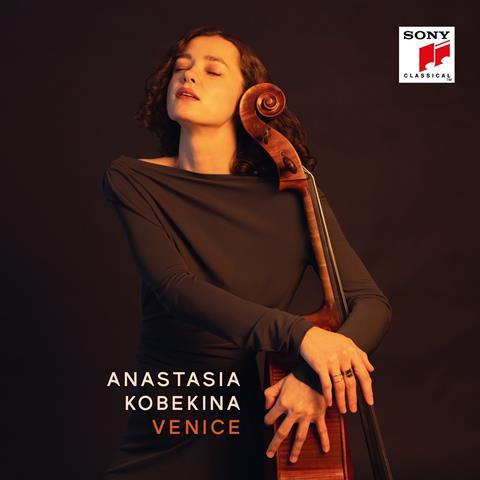Venice offers depths of inspiration in a memorable debut

THE STRAD RECOMMENDS
The Strad Issue: February 2024
Description: Venice offers depths of inspiration in a memorable debut
Musicians: Anastasia Kobekina (cello) Azul Lima (theorbo) Basel Chamber Orchestra/Julia Schröder
Works: Vivaldi: Cello Concertos: D minor RV405, G minor RV416; movements from RV408, 409, 419; works by Bach (after Marcello), Britten, Dowland, Eno, Fauré, Kobekin, Kurtág, Monteverdi, Rota, Sartorio, Shaw, Silvestrov and Strozzi
Catalogue number: SONY CLASSICAL 19658828072
Everyone has their own impressions of Venice. Those of the young Russian cellist Anastasia Kobekina, which inspired her Sony debut album, appear to centre more around dark lapping water and sinister shadows than colourful masked balls.
A glance at the featured composers demonstrates the diversity of Kobekina’s programming. Bookended by Monteverdi’s Arianna’s Lament, in its original version and then as reimagined by her father Vladimir Kobekin, this is a sequence of music that cannot fail to haunt you, performed with infectious spontaneity and recorded with an intimate clarity.
Read: Cellist Anastasia Kobekina signs with Sony Classical
Watch: Anastasia Kobekina performs Debussy’s Beau Soir
Read: Anastasia Kobekina granted use of 1698 Stradivari cello
Vivaldi, one of Venice’s most famous sons, has a major role: two complete cello concertos, plus single movements of others. This is wild (rather than sedate) Vivaldi – you almost imagine the orchestral players slapping their instruments and can practically see Kobekina’s fingers flying over the strings of her 1698 Stradivari cello. The mannered style with which she treats the solo part, milking the drama, may not be to everyone’s taste, but it certainly packs a punch.
Interesting textures abound – cello and theorbo for Brian Eno’s Emerald and Stone, beautiful in its restrained simplicity, cello and viola in Caroline Shaw’s magnetic and highly individual Limestone and Felt, solo cello in the brief but hugely atmospheric ‘Shadows’ from Kurtág’s Signs, Games and Messages and Britten’s Barcarola (from his Third Cello Suite), with its slightly sinister sul ponticello. This is altogether a striking disc.
JANET BANKS











































No comments yet